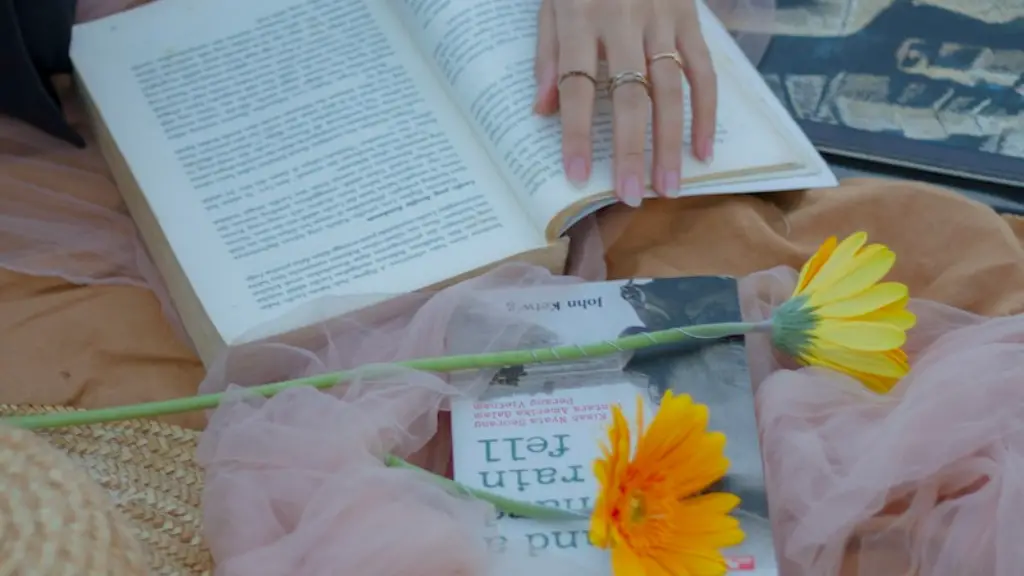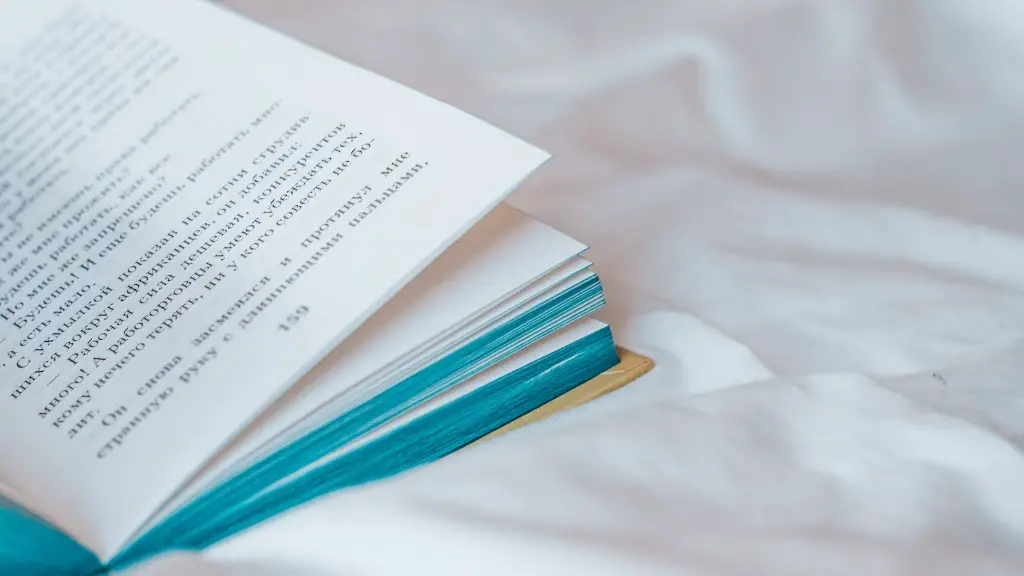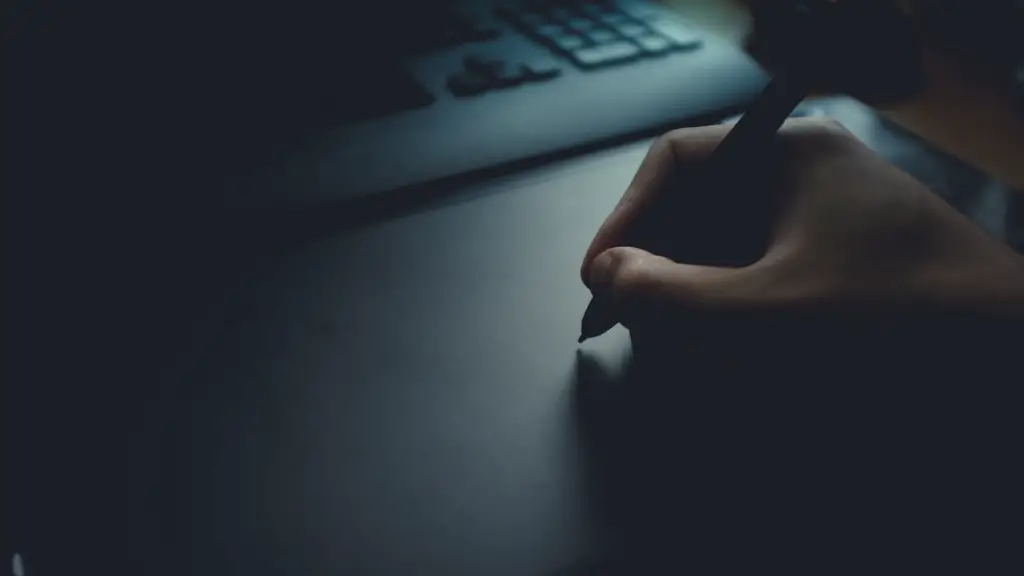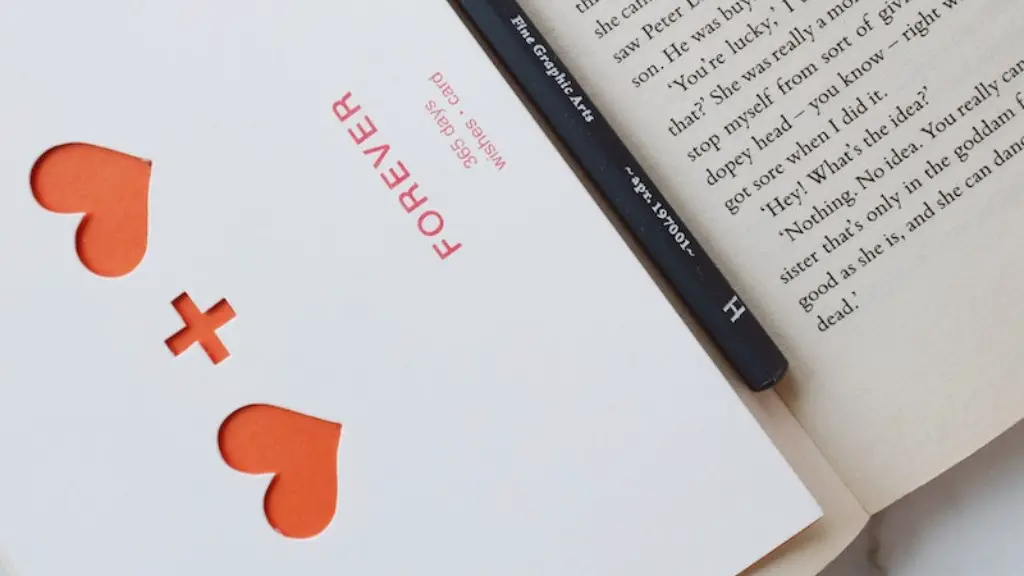Overview of Modern Poetry
Modern poetry is an expansive genre, spanning many different artists, movements, and eras. While there are many different varieties, some of the most commonly discussed are contemporary poetry, performance poetry, surrealist poetry, and postmodern poetry. This article will examine the history of these four varieties, including their origins and notable works.
Contemporary Poetry
Contemporary poetry has its roots in the era known as Postmodern literature, which began in the mid-20th century. Writers of the period responded to the oppressive cultural structures, values, and conventions of the time. Prominent characteristics of Postmodernism, such as lack of faith in the ideals of the past and embracing of a newfound freedom of expression, were reflected in the writing of the contemporary writers. These poets chose to break free from the traditional forms of poetry, experimenting with new meanings and topics unheard of in the Western canon.
Notable authors who made their marks in the era of contemporary poetry included Sylvia Plath, T.S. Eliot, and e. e. cummings. Each of these authors explored taboo topics, provided a voice for the otherwise marginalized, and documented the evolution of the times. Plath famously depicted her struggles with depression and themes of femininity with her landmark book, The Bell Jar. Eliot and cummings also pushed boundaries, specifically in the realms of imperialism, identity, and sexuality.
Performance Poetry
Performance poetry is a relatively new, exciting form of expression first recognized in the early 1990s, though its roots can be traced back to the Beat Generation of the 1950s. This type of poetry typically combines traditional poetic elements such as meter and rhyme with the passionate energy and enthusiasm of modern music. Modern performance poems are often set to music, performed with accompaniment and props, and employ added visual and audio elements.
Some of the most influential modern performance poets include Sarah Kay, Saul Williams, and Beau Sia. These poets are known for their distinct works, often addressing such topics as love, identity, injustice, and politics. Prominent works include Kay’s “B”, Williams’s “Coded Language”, and Sia’s “War Street Journal”. All three offer a unique spin on cherished poetic forms, combining creativity and passion in a stunning display of self-expression.
Surrealist Poetry
Surrealist poetry,a form of modern poetry, emerged in the later 1920s. Influenced by the philosophies and techniques of Surrealism – a 20th-century artistic and literary movement – some of these poems explored the realms of the unconscious, often pushing boundaries and seeking to tap into the subconscious and the dream state. Notable works include those of André Breton, Paul Eluard, and Tristan Tzara.
The techniques employed in surrealist poetry vary, but they all seek to surprise the reader and evoke a response. Common techniques used include the juxtaposition of diverse images, the introduction of unexpected elements, and the reliance on symbolism to convey ideas. The psychoanalytical nature of such works adds an interesting dimension to the narrative, providing readers with an intimate look at the inner workings of the human mind.
Postmodern Poetry
Postmodern poetry is a genre of modern poetry characterized by an interest in the abstract, a disregard for traditional poetic conventions, and an expanded focus on self-expression. Unlike the contemporary and performance poets who often addressed traditional topics, postmodern poets used their work to explore the inner landscape and push literary boundaries.
Notable poets of the postmodern era include John Ashbery, W.S. Merwin, and Jean Valentine. All three are known for their abstract works that attempt to transcend the rules of language, leading readers on an often surreal journey. While some postmodern works focus on the surreal, others serve as a critique of society or an exploration of the meaning of life and its many complexities.
A History of Modern Poetry PDF
Modern poetry continues to evolve, often pushing boundaries and exploring topics not included in traditional works. As a result, more and more writers are taking up the craft, producing works that embrace the various styles of contemporary, performance, surrealist, and postmodern poetry. As the population of poet continues to grow, so too does the availability of poetry in digital form, such as the increasingly popular history of modern poetry PDF.
A history of modern poetry PDF offers readers a comprehensive overview of the genre. It provides information on the origins, techniques, and authors associated with each type of modern poetry, along with samples of notable works. Additionally, a history of modern poetry PDF enables individuals to access the same type of information they’d find in a book without the need to go through a physical copy. This format enables readers to quickly access and share information, spreading the impact of modern poetry to broader audiences more quickly.
How to Read and Understand a History of Modern Poetry PDF
When reading a history of modern poetry PDF, it is important to keep in mind the content of the document. The best way to access the information is to read it with an open mind, understanding that the writer may explore a different perspective from your own. Additionally, it is important to note the dates associated with each form, and take into account the fact that the meanings and styles associated with the genre have changed over time.
The Benefits of a History of Modern Poetry PDF
Investing time and energy into reading and understanding a history of modern poetry PDF can offer individuals a number of key benefits. Specifically, this type of document enables readers to gain an understanding of the various forms, topics, and authors associated with modern poetry, while at the same time being able to access this data without having to search through bookstores or libraries. Additionally, the digital format of a history of modern poetry PDF gives readers the ability to quickly and conveniently share this important information with others.
Modern Poetry as an International Phenomenon
Modern poetry is not confined to one specific country, but instead, has become an international phenomenon. Due to the growing popularity of the genre, modern poetry is now showcased in both contemporary and traditional literary festivals and readings, in poetry slams and battles, and even in open mic nights and digital forums. These events serve as a means for readers to connect with each other, discuss their shared interests, and ultimately, enjoy the works of modern poetry.
A Look at Modern Poetry Events
Modern poetry events are the perfect opportunity for readers to engage with like-minded individuals and explore the genre in a communal setting. These events provide individuals with the chance to learn from experts in the field, discover new works, and even share their own interpretations of modern poetry.
Modern poetry events come in many different forms, ranging from traditional readings to vibrant music and performance showcases. Regardless of the type of event, all of them offer attendees an opportunity to experience the genre of modern poetry in its many forms and tap into the creative energy of the performers and fellow audience members.
The Impact of Digital Technology on Modern Poetry
The digital age has had a profound impact on modern poetry, making it easier than ever for readers to access and share these works. Advancements in technology have enabled readers to quickly find and explore poems, short stories, and other forms of writing from a variety of genres. Additionally, digital technology has enabled poets to access a wide range of tools to enhance their work and quickly share their poems with a global audience.
Conclusion
Modern poetry is an expansive genre that continues to evolve, exploring topics and ideas not discussed in traditional poetic works. The availability of modern poetry PDFs has enabled readers to access and share the works of these poets, while the increased popularity of modern poetry events provides individuals with an opportunity to explore the genre in a communal setting. Ultimately, this access to literature and the creative energy of poets is at the heart of modern poetry, providing readers with an ever-evolving experience.



